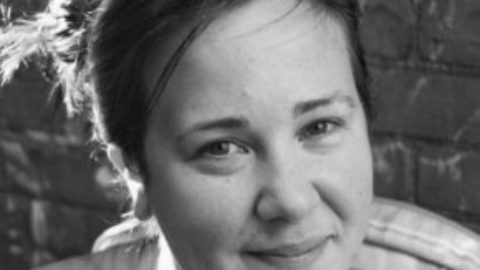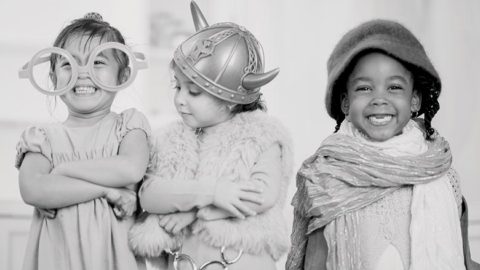Jason Scozzari is a talented Hamilton-based performer and instructor who recently joined our HCA Music Faculty. With many years of experience teaching both piano and theory, we spoke to Jason about his own artistic background and teaching philosophies, practice tips for students, and why music matters.
You’ve studied with some phenomenal pianists. What are some things that you’ve learned from them that you pass along to your students?
All of my mentors have instilled in me the importance of having a passion for playing the piano and for music in general. I have been very fortunate to learn from artists that truly love their work. In addition to learning many aspects of stylistic interpretation, I have also discovered a very ‘natural’ approach to technique through my lessons with Valerie Tryon. Over the years I have come to realize the importance of ergonomic efficiency and its impact on one’s longevity in playing their instrument. I have also learned the importance of a hard work ethic and regular practice, paired with the inspiration and enjoyment found in other aspects of daily life.
Who are your favourite composers and why?
From the classical canon I would have to choose Frédéric Chopin and Franz Liszt. In addition to their unique stylistic innovations, both of these composers understood the modern piano like no other; writing incredibly comfortable and ‘pianistic’ compositions. One can learn virtually everything they need to know about piano technique through the study of Chopin and Liszt’s music. In terms of modern composers, I have been fascinated by the music of Luis Resto for quite some time. Luis is one of the most versatile artists that I know and one of my greatest musical inspirations. His compositions embody an amalgamation of styles, demonstrating his influence of classical, jazz, latin, rock, funk and popular music.
How would you describe your teaching philosophy?What should students expect when taking lessons with you?
I believe that learning music in any capacity should be an enjoyable and exciting experience. I always strive to create a positive, encouraging and open-minded atmosphere that fosters growth and musical development. Each lesson curriculum is designed to help the student achieve their individual goals.
You’ve been a music instructor for the past 8 years. Is there a particular moment that has stood out in your instructional career?
I always enjoy helping students realize their potential and develop their own gift for music. I have found it very rewarding to see many of my students achieve certain milestones in their musical development such as successfully completing RCM exams with first class honours and performing in front of an audience at various recitals.
As a pianist, you’ve performed extensively. What’s your favourite part of performing, and is there a particular gig that stands out in your mind as your favourite?
I enjoy live performance because you are able to share music with an audience. In the past, I have generally played at corporate fundraisers, dinners, weddings, funerals as well as a solo piano recital at the culmination of my undergraduate studies. However, one of my favorite performance highlights would have to be a recording that I made commemorating the 100th anniversary of World War I. The piece recorded, “Days of Peace” (1915), was later broadcast across the country on CBC Radio.
When students are prepping for RCM exams, what are some top tips to keep in mind?
Choosing a program is one of the most important steps in preparing for an exam. These are pieces that you will spend lots of time with, so make sure you enjoy all of the music you will be playing.
Listen to your program regularly. Listen to as many different recordings as possible to help you develop your own ideas and interpretation of the music. Have an idea of what you want each piece to sound like before sitting down to practice.
Understand exactly what you are required to know for the exam. Ensure that you have the proper repertoire, scales and chords memorized. Start memorizing as early as possible.
Establish a regular daily practice schedule. With your teacher’s assistance, set attainable goals for each day, week and month leading up to the exam. This will allow you to enter your exam confidently and result in a successful performance!
Sometimes, when parents enroll young children in piano, they are uncertain about how to get their children to practice regularly or effectively. What would you suggest to these parents?
Students need inspiration. They need to hear and see something that will make them want to go and practice on their own. Therefore, I highly recommend that parents try to expose their children to as much music as they can. Take your children to as many live performances as possible, help them discover new music, listen to the radio and watch videos on YouTube. All of this will help the student to find the right inspiration! Additionally, I believe it is very beneficial to have a regular practice schedule. Be realistic. Evaluate how many days per week that your child is able to practice. Find a time for each of those days where the child can spend 30 minutes (or whatever amount of time is appropriate to their level of playing) at the piano without any interruptions or distractions. To get the most out of a practice session, it is important to establish a clear and realistic goal that can be achieved within that time frame. Parents should offer encouragement and show interest in all levels of their child’s musical development.
You focused on pedagogy of theory during your Masters of Music at the University of Toronto. For some students, theory can be a more difficult subject to grasp, particularly at higher levels of theory. How do you make it more accessible to your students?
I try to relate all theoretical concepts to practical situations and real musical examples. I teach as much as theory as I can at the piano so that students can play and hear what they are writing. Through my experience teaching at the university level, I have found that it is incredibly beneficial to integrate a fair amount of singing into any theory and/or ear-training curriculum.
Why is learning music important?
I believe that music empowers each student to form their own artistic interpretations, build confidence and develop their sense of creativity. Many of these skills transfer into other aspects of our daily lives. Music develops and exercises the human mind in ways that no other activity can. It is a universal language that brings joy to everyone across the world. For those that are fortunate enough to develop the skill, they will enjoy a lifetime of happiness!
To book a free 15-minute introductory lesson with Jason or another HCA music instructors, please email info[at]hcarts.ca or call us at 905-528-4020. Classes begin on September 7, with ongoing enrollment throughout the year.









